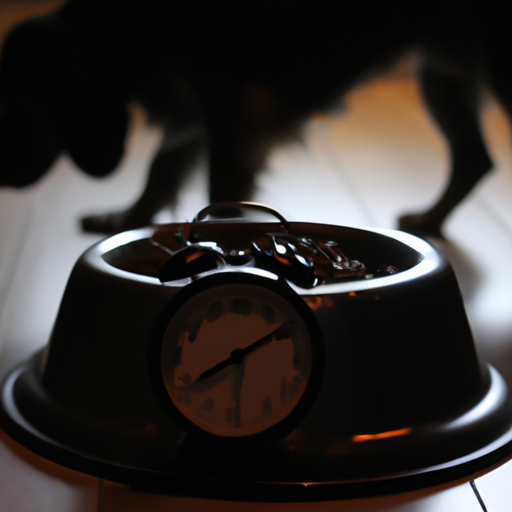As a dog owner, it’s only natural to be curious about the inner workings of your furry friend. One question that frequently comes up is: “How long does it take for a dog’s food to digest?” Understanding the digestive process can not only satisfy your curiosity, but also inform decisions about feeding schedules, exercise, and overall care. Let’s dive in and learn more about canine digestion.
Table of Contents
- The Canine Digestive Process
- Factors Influencing Digestion Time
- Understanding Your Dog’s Poop
- Frequently Asked Questions
Key Takeaways
- The canine digestive process typically takes between 10 to 24 hours.
- Various factors such as breed, size, diet, and health can influence digestion time.
- Monitoring your dog’s poop can provide insights into their digestive health.
- Regular vet check-ups are crucial to ensure your dog’s digestive system is functioning properly.
The Canine Digestive Process
Dogs are carnivorous creatures, evolved to consume meat. However, modern dogs often have a diet that is a mix of proteins, carbohydrates, and fats. The digestion of all these nutrients happens in different stages of the canine digestive system.
The process begins in the mouth. As soon as your dog takes a bite of food, the salivary glands start producing enzymes that begin breaking down the food. Then, the food moves down the esophagus and lands in the stomach where it’s bathed in stomach acid and more digestive enzymes. This process can take between 4 to 5 hours.
Next, the food is pushed into the small intestine. Here, the food is broken down further by enzymes produced by the pancreas and the walls of the intestines. Nutrients are then absorbed into the bloodstream. This stage can take anywhere from 4 to 9 hours.
Finally, the leftover waste moves into the large intestine where water is absorbed back into the body and the waste is formed into feces. This is then eliminated through the rectum. This final stage can take between 2 to 3 days.
So, in total, the whole digestive process in dogs typically takes between 10 to 24 hours. However, this can vary depending on several factors.
Factors Influencing Digestion Time
Several factors can influence the time it takes for a dog’s food to digest.
Breed and Size: Larger breeds tend to have slower metabolic rates and therefore digest food slower than smaller breeds.
Diet: The type of food also plays a significant role. For instance, wet food is easier to digest than dry food. Similarly, high-quality dog food with easily digestible ingredients can be processed faster than food with lots of fillers.
Health: Health conditions such as gastrointestinal issues can also affect digestion time.
Age: Older dogs may have slower digestion compared to younger ones due to a slower metabolic rate.
Activity Level: Active dogs tend to digest food faster than less active ones.
Understanding these factors can help you adjust feeding schedules and portion sizes to ensure your dog is getting optimal nutrition.
Understanding Your Dog’s Poop
Your dog’s poop can provide a wealth of information about their digestive health. Regular, firm stools are a sign of good digestion. On the other hand, if your dog’s stools are loose, watery, or irregular, it could be a sign of digestive issues. Always consult your vet if you notice any changes in your dog’s stool.
There are some excellent resources available on OneTopDog for understanding what your dog’s poop is telling you. You can learn about the different types of dog poop and what they mean. There’s also a handy guide on how to handle digestive issues and how to choose the right food for your dog.
Frequently Asked Questions
1. How long does it take for a dog to digest a bone?
This can vary depending on the size and type of bone, as well as the dog’s size, breed, and diet. Generally, it can take anywhere from 24 to 72 hours for a bone to be fully digested.
2. Can I feed my dog right before or after exercise?
It’s generally recommended to wait at least an hour after feeding before exercising your dog, and similarly, to wait at least an hour after exercise before feeding. This can help prevent conditions like bloat, especially in larger breeds.
3. Can changing my dog’s diet affect their digestion?
Yes, changing your dog’s diet can affect their digestion. This is why it’s recommended to gradually transition your dog to a new diet over a period of a week or so, to allow their digestive system time to adjust.
In summary, understanding your dog’s digestive process is key to providing the best care for your furry friend. Stay observant, be proactive, and always consult your vet if you have any concerns about your dog’s digestion.



